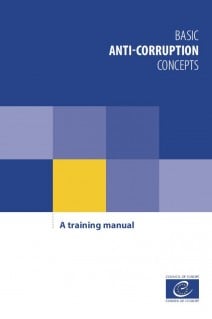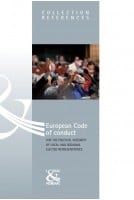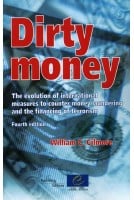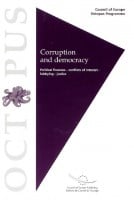



“In countries where corruption is widespread, people tend to quickly attribute anything that goes wrong to corruption. Defnitions here can help to distinguish corruption from, for example, mismanagement, or other forms of economic crime and administrative violations.”
The Economic Crime and Cooperation Unit (ECCU) at the Directorate General Human Rights and Rule of Law of the Council of Europe is responsible for designing and implementing technical assistance and cooperation programmes aimed at facilitating and supporting anti-corruption, good governance and anti-money laundering reforms in the Council of Europe members states, as well as in some non- member states.
Contents
FIGURES AND TABLES
FOREWORD
INTRODUCTION
1. CORRUPTION
1.1. Definition
1.2. Forms
1.3. Terminology
1.4. Causes
1.5. Consequences
2. MEASURING
2.1. Corruption
2.2. Excursus: International corruption scores and surveys
2.3. Corruption risks
3. RESPONSES: OVERVIEW
3.1. Opinions and strategies
3.2. Reform of legislation and regulations
3.3. Judicial reform
3.4. Law enforcement
3.5. Public administration/civil service reform
3.6. Public education and participation of civil society as independent monitors of anti‑corruption reforms
4. SUCCESS STORIES
4.1. The example of Georgia
4.2. Other examples
4.3. Success patterns
4.4. Literature
5. ETHICS
5.1. Ethics as an anti‑corruption approach
5.2. How to change an ethical culture?
5.3. Regulating ethics
5.4. Training in ethics
5.5. Integrity testing
5.6. Literature
6. CRIMINALISATION
6.1. Elements of crime
6.2. Non‑liability
6.3. Immunities as an obstacle to prosecution
6.4. Sponsorship and criminal law
6.5. Literature
7. POLITICAL FINANCING
7.1. Background
7.2. State and private funding
7.3. Integrity in political finance
7.4. Misuse of public resources
7.5. Transparency in political finance
7.6. Literature
8. INTERNATIONAL STANDARDS
8.1. Background to international standards
8.2. Conventions
8.3. Comparison of international agreements
8.4. Implementation and monitoring
8.5. Non‑binding standards
9. APPENDICES
9.1. General literature
9.2. Internet sources
9.3. International standards: Council of Europe
Télécharger un extrait (1000)







“In countries where corruption is widespread, people tend to quickly attribute anything that goes wrong to corruption. Defnitions here can help to distinguish corruption from, for example, mismanagement, or other forms of economic crime and administrative violations.”
The Economic Crime and Cooperation Unit (ECCU) at the Directorate General Human Rights and Rule of Law of the Council of Europe is responsible for designing and implementing technical assistance and cooperation programmes aimed at facilitating and supporting anti-corruption, good governance and anti-money laundering reforms in the Council of Europe members states, as well as in some non- member states.
Attention, en vertu de nos conditions générales de vente, l'achat des PDF/epub est réservé aux particuliers.
